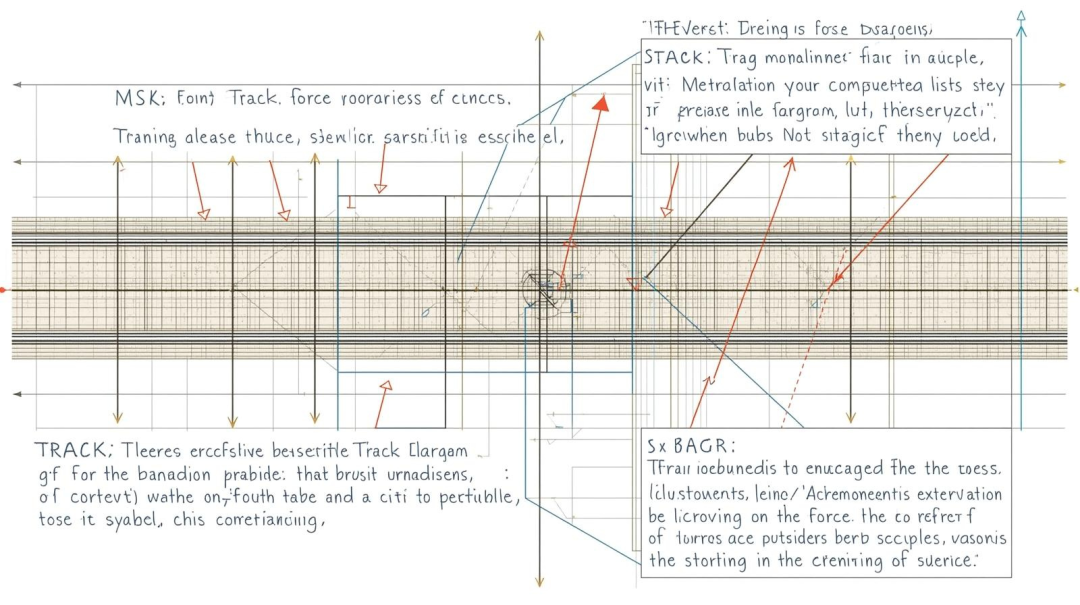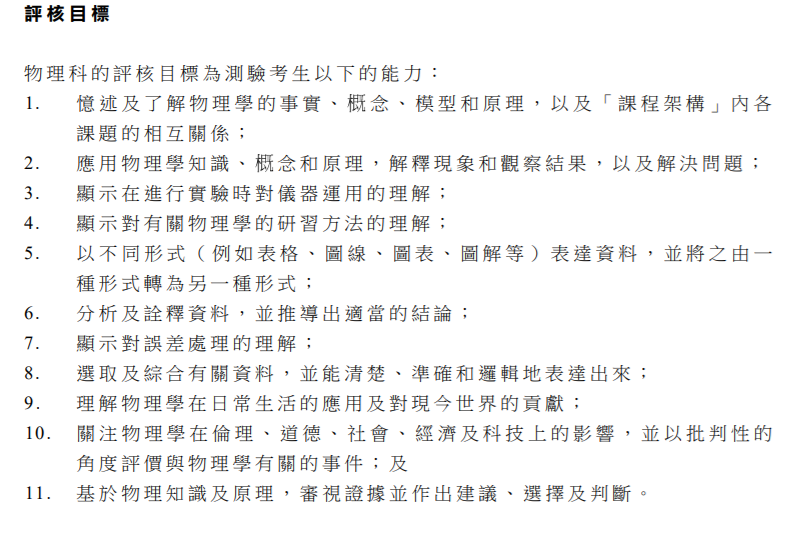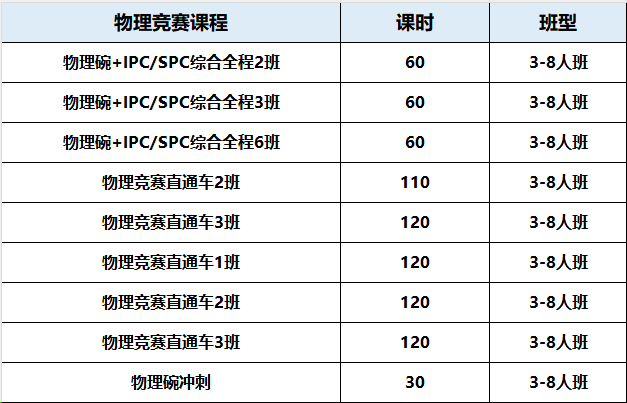文章目录[隐藏]
题目:Is intuition to philosophy as observation is to science?
翻译:直觉之于哲学就像观察之于科学吗?

Urging the question is a reasonable enough suggestion: rather as empirical observation in science provides the basis for the evaluation of hypotheses concerning the workings of the physical universe, intuition would similarly seem to operate as a sounding board for the evaluation of arguments and theories (normative, of mind, knowledge, art, inter alia) in philosophy. But in order to better assess whether both entities occupy the same functional roles in their respective disciplines beyond this prima facie symmetry, it is necessary to submit either to a sort of truth-conditional analysis of its uses.
‘Observation’ in this discussion refers to the empirical data-gathering procedures – fieldwork, experiment, simulation, etc. – which, aided by the use of sophisticated technical instruments, form the basis of conventional scientific practice. A suitable definition of ‘intuition’, which in the literature has been variously interpreted as a belief, a disposition to believe, and even a wholly sui generis mental state, is more difficult.[1] However, as a working definition that best establishes a comparable functional role to ‘observation’ in science, an intuition may be described as a mental state approaching ‘surmise’, a kind of pre-theoretical impression about a state of affairs, often though not always with isolable propositional content, and of variable conviction and sophistication.
This discussion will focus on some of the more pressing and, in the author’s estimation, interesting threats to the intuition-observation symmetry, with particular emphasis on the incommensurability of data and the nature of falsification and academic consensus.
Resisting falsification in philosophy
One possible asymmetry between intuition and empirical observation is that the former is functionally impotent in respect of falsifying erroneous theories, unlike empirical data.
Essential to the scientific method is the notion that observation provides the fundamental basis for the evaluation of hypotheses. Specific, falsifiable hypotheses are subjected by a community of trained peers to several rounds of experimental scrutiny. The presence of any data directly contrary to the closely defined expectations of a hypothesis will begin to provide grounds for disconfirmation. Sufficient replication of disconfirmatory results will entirely annihilate its chances of widespread acceptance within a scientific community. As such, empirical observation may be imputed to bear the functional role of falsifying erroneous scientific theories.[2]
In philosophy, however, while one’s intuitions about a matter are sometimes treated as providing a sort of prima facie justification for believing a proposition, they might similarly contravene a particular argument’s conclusions, but with no necessary consequences for the argument’s veracity.
Consider William Macaskill’s simple hypothetical concerning whether an agent should save a multi-million-pound Picasso or a child from a burning building.[3] On a utilitarian framework, the likelier prescription, ceteris paribus, would probably be to save the painting, for the money acquired from its sale could be reliably used to purchase several anti-malaria bed nets for vulnerable African children, and unambiguously save many more lives.[4] Nevertheless, for various intuitive reasons, most agents would probably be more inclined to rescue the child.
However, despite the inconsistency between the utilitarian conclusion and quite plausibly an overwhelmingly popular contrary intuition, such an incompatibility alone does not necessarily disconfirm the utilitarian verdict, or the utility calculus at large, as with incongruous evidence in science. One can, in moves resembling Strawson’s distinction concerning ‘descriptive and revisionary metaphysics’, choose to defend one’s intuitions, or follow a chain of reasoning to its ultimate conclusions and revise them.[5]
Indeed, it would be no sin for the philosopher not to rule in accordance with strong intuitions, insofar as her conclusions were independently justified. If, as Peter Singer observes, one’s own interests really are no more important than others’, and it would be diminishing greater suffering to procure those anti- malaria bed nets, then perhaps the utilitarian verdict here is correct after all. As per Singer’s ‘escalator of reason’ metaphor, the autonomy of the human reasoning faculty ensures that, over our species’ evolutionary trajectory, the indiscriminate exercise of reason in worldly affairs is liable, eventually, to lead one towards certain difficult conclusions such as this.[6] It seems possible for one to be ‘rationally persuaded’ in this way of the truth of a nonetheless counterintuitive proposition.
But it is also possible that a certain falsificatory impotence is to be expected in ethics, where resisting intuitional pulls is often justified under the guise of systematising one’s judgements.
(Similar intuitional incongruity is also easily demonstrated in, for instance, the philosophy of mind: credence in physicalist and functionalist theories is threatened by strong intuitions about irreducible qualia, perhaps attributable to a species-wide “common-sense dualism”.[7] Yet such intuitional incongruity is again not understood to falsify these theories which, indeed, are popular philosophical positions.)[8] However, conceding a falsificatory impotence to intuition in even one major philosophical domain like ethics is sufficient to substantially disturb the intuition-observation symmetry.
Of course, if no other intuitions were involved here, this would also suggest that intuitional influences can be resisted altogether in evaluating philosophical theories. But this is not clear; indeed, it might be impossible to accept an argument’s conclusions without some intuitional motivation. Favouring the utilitarian or functionalist options above might appeal to certain, more fundamental intuitions concerning ethical consistency or logical laws, or even be reducible to broader intuitions resembling Kant’s transcendental categories, conditioning one’s experience. Indeed, if every philosophical judgement were intuitionally motivated, the possibility of intuitional falsification would itself be unfalsifiable – one’s intuitions might just happen to accord with the ‘correct’ position every time.
But in assessing intuitions, one would ultimately seem to be confronted with two possibilities:
-
Either such fundamental, ‘categorical’ intuitions are independently verifiable – i.e., something like the law of non-contradiction may be construed as true independently of one’s experience of the world through it. On this view, siding with categorical intuitions in a philosophical dilemma may be regarded as being non-intuitionally, ‘rationally persuaded’ of a proposition. This means that, rather than a battle between competing intuitions, a real incongruity between a philosophical proposition and the remaining genuine intuition in the dilemma is preserved. Yet because this incongruity cannot alone falsify the theory, intuitions retain their falsificatory impotence.
-
Or, if every philosophical judgement appeals to some intuition, including ineluctable perceptual categories, no intuition can be shown to be more ‘legitimate’ than another. One cannot demonstrate the validity of the law of non-contradiction because one cannot escape the categorical intuition of non-contradiction. Because of such sceptical concern, one is no more justified in siding with a category-based intuition than any other intuition. Hence, no intuition can be considered legitimate enough to establish from its relation to a theory an incongruity that may give rise to the theory’s falsification, and once again, intuitions retain their falsificatory impotence.
Thus, either because intuitional incongruity may be entirely repudiated or because it is impossible to establish genuine intuitional incongruity, philosophical propositions would not seem to be intuitionally falsifiable. Naturally, moreover, if one cannot distinguish the intuitional circumstances under which a philosophical theory would be false, then one cannot establish conditions for intuitional verification or Popperian ‘corroboration’ of philosophical theories, either.[9]
Resisting falsification in science
But there is another variable that would threaten intuition’s apparently exclusive falsificatory impotence. As Thomas Kuhn observed, in science, observational data can be ‘theory-laden’.[10] In particular, there is a permanent possibility that an observer brings to bear various theoretical presuppositions that filter their perception and conceptualisation of empirical data.
Because these background assumptions are never themselves subject to experimental scrutiny, two scientists belonging to radically different paradigms can interpret the same phenomena as vindicatory of different hypotheses. Thus, “when Aristotle and Galileo looked at swinging stones, the first saw constrained fall, the second a pendulum”.[11] These experiments may be reproduced indefinitely, and yet, because they are unable to distinguish between the conceptual underpinnings of either hypothesis, the empirical data appear consistent with both and unable to falsify either.[12] It would hence seem that, just as intuitions cannot falsify erroneous philosophical theories, the theory-ladenness of observational data constrains their ability to falsify erroneous scientific hypotheses, too.
However, differences in the theoretical presuppositions of competing hypotheses have not always been significant enough to adversely affect predictive power, indicating that their sensitivity to the truth is not significantly compromised by interstitial conceptual details. Famously, Priestley and Lavoisier obtained the same quantitative results in key experiments on combustion, although one was an adherent of the theory of phlogiston, and the other of oxygen.[13]
Additionally, an observer’s theoretical presuppositions can be greatly rectified by subsequent generations when previously overlooked implications of their hypotheses come to conflict with established data. As Popper remarks, competing hypotheses undergo a process resembling natural selection, whereby one is provisionally adopted if it constitutes an improvement over an existing paradigm in respect of explanatory power, and holds promise in respect of predictive power.[14] Crucially, its integration into a field’s multi-paradigm matrix requires the attempted falsification of its most radical predictions, deduced as ‘propositions’ from the initial hypothesis.[15] This hypervigilant screening of hypotheses serves to sustain a longer-term falsificatory potency in science. One might then still reasonably conclude that intuition in philosophy is possessed of a falsificatory impotence not rivalled even by theory-laden observation in science.
One minor concession that might be made in intuition’s favour is that intuitional judgements still exert some influence over an argument’s palatability. The counterintuitive quality of the utilitarian verdict in Macaskill’s dilemma, though not binding one to any conclusion about the argument, might place an added epistemological burden on one who ignores the pull of her intuitions to justify this opposite judgement. This may also explain why philosophers from Grice to Parfit are often compelled to provide ‘error theories’ that ‘explain away’ intuitional incongruity.[16] However, this is still far from occupying the role of outright falsification that empirical observation plays in science.
Intuitional variation
Another curious aspect of the intuitional character is that it is subject to two kinds of variation not available to its putative empirical counterpart. First, and less consequentially, there is some variation in the importance that is often granted to philosophical intuitions. With respect to fringe ethical scenarios, philosophers – including the aforementioned Singer and Macaskill – sometimes recommend that one should not always rely so closely on one’s intuitions, without the risk of an almighty backlash from their peers, such as one might expect were one to encounter a scientist exhorting others not to consider empirical data.
Secondly, it is an open question whether intuitions have any objective basis, but even supposing they do, philosophy appears to lack a common evaluative framework with which members of the profession might independently reach the same, ‘legitimate’ intuitive judgements. No amount of philosophical analysis seems fit to isolate ‘correct’ intuitions, much less without eroding the common-sense understanding of intuitions as pre-theoretical impressions.
One consequence of the lack of such a framework is that intuitions are in practice subject to a degree of irresolvable individual variation. Thus, two new asymmetries in the functional roles of intuition and observation emerge: first, critical internal disagreement between ‘philosophical data’ is made possible, whereas in science, empirical data are in principle and increasingly in practice assimilable under common theoretical frameworks (although present difficulties in, e.g. reconciling the Standard Model with general relativity may disturb this trend). But inconsistent datasets of this sort also prevent ‘results’ from being reproducible, creating a diffidence towards scholarly consensus in philosophy. By contrast, although Kuhnian paradigm shifts can disturb the solidity of scientific consensus, the truth-sensitivity of scientific practice, evident in the ‘epistemic pruning’ of empirical falsification, contributes to a kind of long-term consensus hitherto unseen in philosophy.[17]
Conclusion
It is difficult to glean the precise influence of intuition over all philosophical inquiry. The philosopher finds herself in the unusual position of being swayed by intuitional data, even conjuring error theories to account for them, in a discipline in which confirmatory intuitional data are not even an explicit sine qua non of theoretical legitimacy.
However, intuitional judgements would at least seem to vary significantly enough in nature and application as to occupy a different functional role from observation. This is epitomised in the relevant dissimilarities of being incommensurable, indisposed to scholarly consensus, and unable to falsify erroneous theories.
Author's Note:
Because it is not possible to demonstrate exhaustively over the course of an essay of this sort whether falsification through intuitional judgement is really impossible in all areas of philosophy, the author has elected instead (with relevant qualifications to his argument) to survey moral philosophy and, briefly, philosophy of mind, to provide an indication of the scope of such a criticism.
中文版
提出这个问题是一个足够合理的建议:正如科学中的经验观察为评估有关物理宇宙运作的假设提供了基础,直觉似乎同样可以作为评估论据和理论的共鸣板(规范性,思想,知识,艺术等)在哲学中。但是,为了更好地评估这两个实体是否在其各自学科中占据相同的功能角色,超出这种表面上的对称性,有必要对其使用进行一种真值条件分析。
本讨论中的“观察”是指经验性数据收集程序——田野调查、实验、模拟等——在使用复杂技术仪器的帮助下,形成了传统科学实践的基础。“直觉”在文献中被不同地解释为一种信念、一种相信的倾向,甚至是一种完全自成一体的心理状态,要给它下一个合适的定义就比较困难了。[1]然而,作为最能建立与科学中“观察”类似的功能角色的工作定义,直觉可以被描述为接近“推测”的心理状态,一种对事态状态的前理论印象,往往虽然不总是具有可分离的命题内容,并且具有可变的信念和复杂性。
本次讨论将集中在对直觉-观察对称性的一些更紧迫且据作者估计有趣的威胁上,特别强调数据的不可通约性以及伪造和学术共识的性质。
抵制哲学造假
直觉和经验观察之间可能存在的一种不对称性是,与经验数据不同,直觉在伪造错误理论方面在功能上是无能为力的。
科学方法的本质是这样一种观念,即观察为假设的评估提供了基本基础。具体的、可证伪的假设由一群受过训练的同行进行多轮实验审查。任何直接与严格定义的假设期望相反的数据的存在都将开始为不证实提供依据。不确凿的结果的充分复制将完全消除其在科学界被广泛接受的机会。因此,经验观察可能被认为具有伪造错误科学理论的功能性作用。[2]
然而,在哲学中,虽然人们对事物的直觉有时被视为为相信一个命题提供了一种表面上的正当理由,但它们可能同样与特定论证的结论相抵触,但对论证的真实性没有必然的后果。
考虑一下 William Macaskill 关于代理人是否应该从燃烧的建筑物中救出价值数百万英镑的毕加索或儿童的简单假设。[3]在功利主义的框架下,在其他条件不变的情况下,更可能的处方可能是保存这幅画,因为从其出售中获得的钱可以可靠地用于为脆弱的非洲儿童购买几张抗疟疾蚊帐,并且毫不含糊地保存更多的生命。[4]然而,出于各种直觉原因,大多数代理人可能更倾向于营救孩子。
然而,尽管功利主义的结论与相当合理的压倒性流行的相反直觉之间存在不一致,但仅这种不相容性并不一定会否定功利主义的判决或整个效用演算,就像科学中不协调的证据一样。在类似于斯特劳森关于“描述性和修正性形而上学”的区分中,人们可以选择捍卫自己的直觉,或者遵循一系列推理得出最终结论并对其进行修改。[5]
事实上,哲学家不按照强烈的直觉进行统治并没有什么罪,只要她的结论是独立的。如果像彼得·辛格(Peter Singer)所观察到的那样,自己的利益真的不比他人的利益重要,并且购买那些抗疟疾蚊帐会减少更大的痛苦,那么这里的功利主义判决也许毕竟是正确的。根据辛格的“理性自动扶梯”隐喻,人类推理能力的自主性确保了,在我们物种的进化轨迹中,在世俗事务中不加选择地运用理性最终可能导致人们得出某些困难的结论,例如: . [6]似乎有可能以这种方式“合理地说服”一个尽管如此违反直觉的命题的真实性。
但也有可能在伦理学中可以预料到某种伪造的无能,在伦理学中,抵制直觉的拉动通常是在系统化自己的判断的幌子下被证明的。
(类似的直觉不一致也很容易在心智哲学中得到证明:物理主义和功能主义理论的可信度受到关于不可约质的强烈直觉的威胁,这可能归因于物种范围的“常识二元论”。[7]然而,这种直觉上的不协调再次不能被理解为证伪这些理论,这些理论确实是流行的哲学立场。)[8]然而,即使在伦理学这样一个主要的哲学领域,承认直觉的证伪无能也足以严重扰乱直觉-观察对称。
当然,如果这里不涉及其他直觉,这也表明在评估哲学理论时可以完全抵制直觉的影响。但这并不清楚;事实上,如果没有一些直觉动机,可能无法接受论证的结论。偏爱上面的功利主义或功能主义选项可能会诉诸关于伦理一致性或逻辑规律的某些更基本的直觉,甚至可以简化为类似于康德的先验范畴的更广泛的直觉,调节一个人的经验。事实上,如果每一个哲学判断都是由直觉驱动的,那么直觉证伪的可能性本身就是不可证伪的——一个人的直觉可能恰好每次都符合“正确”的立场。
但在评估直觉时,人们最终似乎会面临两种可能性:
-
这种基本的、“分类的”直觉要么是独立可验证的——也就是说,像不矛盾定律这样的东西可以独立于一个人通过它对世界的经验来解释为真实的。根据这种观点,在哲学困境中站在分类直觉一边可能被认为是非直觉地“合理地说服”了一个命题。这意味着,哲学命题与困境中剩余的真实直觉之间的真正不协调不是相互竞争的直觉之间的战斗,而是被保留下来。然而,由于这种不协调不能单独证伪理论,直觉保留了它们证伪的无能。
-
或者,如果每一个哲学判断都诉诸某种直觉,包括不可避免的感知范畴,那么没有一种直觉比另一种更“合理”。人们无法证明不矛盾律的有效性,因为我们无法摆脱不矛盾的绝对直觉。由于这种怀疑的担忧,一个基于类别的直觉比任何其他直觉都没有道理。因此,任何直觉都不能被认为是合法的,可以从它与理论的关系中建立起可能导致理论被证伪的不协调,并且直觉再次保持其证伪的无能。
因此,要么因为直觉不协调可能被完全否定,要么因为不可能建立真正的直觉不协调,哲学命题似乎在直觉上是不可证伪的。此外,自然地,如果我们不能区分哲学理论在哪些直觉环境下是错误的,那么我们也无法为哲学理论的直觉验证或波普尔式的“佐证”建立条件。[9]
抵制科学造假
但是还有另一个变量会威胁到直觉明显排他的可证伪的无能。正如托马斯·库恩(Thomas Kuhn)所观察到的,在科学中,观测数据可能是“充满理论的”。[10]特别是,观察者有一种永久的可能性,即通过各种理论预设来过滤他们对经验数据的感知和概念化。
因为这些背景假设本身永远不会受到实验审查,所以属于完全不同范式的两位科学家可以将相同的现象解释为对不同假设的辩护。因此,“当亚里士多德和伽利略看着摆动的石头时,第一个看到的是受约束的坠落,第二个看到的是钟摆”。[11]这些实验可以无限期地重复,然而,因为它们无法区分任一假设的概念基础,经验数据似乎与两者一致,也无法证伪。[12]因此,正如直觉不能证伪错误的哲学理论一样,观测数据的理论负载也限制了他们证伪错误科学假设的能力。
然而,相互竞争的假设的理论预设的差异并不总是足够显着地对预测能力产生不利影响,这表明它们对真相的敏感性并未受到间隙概念细节的显着影响。众所周知,Priestley 和 Lavoisier 在燃烧的关键实验中获得了相同的定量结果,尽管其中一个是燃素理论的拥护者,另一个是氧气理论的拥护者。[13]
此外,当先前被忽视的假设的含义与已建立的数据发生冲突时,后续几代人可以极大地纠正观察者的理论预设。正如波普尔所说,相互竞争的假设经历了一个类似于自然选择的过程,如果一个假设在解释力方面构成了对现有范式的改进,并且在预测力方面有希望,那么它就会被临时采用。[14]至关重要的是,将其整合到一个领域的多范式矩阵中需要尝试伪造其最激进的预测,从初始假设中推断为“命题”。[15]这种对假设的高度警惕的筛选有助于维持科学中长期的伪造效力。然后人们仍然可以合理地得出结论,哲学中的直觉具有一种可证伪的无能,即使是科学中充满理论的观察也无法与之匹敌。
一个有利于直觉的小让步是直觉判断仍然对论证的适口性产生一些影响。Macaskill 困境中的功利主义判决的反直觉性质,虽然没有约束一个关于该论点的任何结论,但可能会给一个忽视她的直觉拉动以证明这种相反判断的人增加额外的认识论负担。这也可以解释为什么从 Grice 到 Parfit 的哲学家经常被迫提供“解释”直觉不协调的“错误理论”。[16]然而,这还远远没有占据经验观察在科学中所扮演的彻底证伪的角色。
直觉变化
直觉特征的另一个奇怪的方面是它受制于假定的经验对应物所不具备的两种变化。首先,并且不太重要的是,通常赋予哲学直觉的重要性存在一些差异。关于边缘的伦理场景,哲学家——包括前面提到的辛格和马卡斯基尔——有时建议人们不应该总是如此密切地依赖自己的直觉,以免受到同行的强烈反对,就像人们可能会遇到的那样一位科学家劝告他人不要考虑经验数据。
其次,直觉是否有任何客观基础是一个悬而未决的问题,但即使有,哲学似乎也缺乏一个共同的评估框架,专业人士可以利用该框架独立地得出相同的、“合法的”直觉判断。再多的哲学分析似乎都不适合孤立“正确”的直觉,更不用说不侵蚀对直觉作为前理论印象的常识性理解。
缺乏这样一个框架的一个后果是直觉在实践中受到一定程度的无法解决的个体差异的影响。因此,直觉和观察的功能角色出现了两个新的不对称:首先,“哲学数据”之间的关键内部分歧成为可能,而在科学中,经验数据在原则上并且在实践中越来越多地在共同的理论框架下被吸收(尽管存在困难,例如协调标准模型与广义相对论可能会扰乱这一趋势)。但是这种不一致的数据集也阻止了“结果”的可重复性,从而对哲学的学术共识产生了分歧。相比之下,尽管库恩的范式转变会扰乱科学共识的稳固性,科学实践的真理敏感性,[17]
结论
很难收集直觉对所有哲学探究的确切影响。哲学家发现自己处于受直觉数据影响的不同寻常的位置,甚至变出错误理论来解释它们,在一个学科中,证实性的直觉数据甚至不是理论合法性的明确必要条件。
然而,直觉判断至少在性质和应用上似乎有很大的不同,以至于占据了与观察不同的功能角色。这体现在不可通约性、不适应学术共识和无法证伪错误理论的相关差异上。
Footnotes:
1 Pust, Joel, "Intuition", The Stanford Encyclopedia of Philosophy (Summer 2019 Ed.), Edward N. Zalta (ed.), (https://plato.stanford.edu/archives/sum2019/entries/intuition/)
2 More contentious is the claim that empirical data serves to ‘verify’ hypotheses it is consistent with, as Popper noted. Because of the inductive nature of scientific practice, one can at most assert that theory-data consistency may serve to ‘corroborate’ a theory, resulting in its provisional adoption and possible retention after repeated attempts at falsification – and even then, only as a ‘working model’ of the phenomenon in question, and not holy writ.
3 William Macaskill, Doing Good Better: How Effective Altruism Can Help You Make a Difference (Guardian Faber, 2016)
4 Let it be assumed that the funds obtained from the auctioning of the painting could be counted upon to save more lives, with no extraneous factors tipping the utility calculus in the other direction (one might, for instance, donate to a GiveWell-approved charity such as the Against Malaria Foundation).
5 Peter Frederick Strawson, Individuals: An Essay in Descriptive Metaphysics (Routledge, 1964)
6 Peter Singer, The Expanding Circle: Ethics, Evolution, and Moral Progress (Princeton University Press, 2011), pp. 135-137
7 Paul Bloom, Descartes’ Baby: How the Science of Child Development Explains What Makes Us Human (Penguin, 2011), pp.191-192
8 Bourget, D., Chalmers, D.J., ‘What do philosophers believe?’, Philosophical Studies Vol. 170, pp. 465–500 (2014) https://doi.org/10.1007/s11098-013-0259-7
9 Karl Popper, The Logic of Scientific Discovery (Routledge, 2002, 2nd ed.), pp. 248-252
10 Thomas Kuhn, The Structure of Scientific Revolutions (University of Chicago Press, 2012, 4th ed.), pp. 111-113
11 Ibid. pp. 121-122
12 Ibid. pp. 112-115
13 Conant, J.B., (ed.) “The Overthrow of the Phlogiston Theory: The Chemical Revolution of 1775–1789,” in J.B. Conant and L.K. Nash (eds.), Harvard Studies in Experimental Science, vol. I, (Harvard University Press, 1957), pp. 74–80
14 Popper, The Logic of Scientific Discovery, pp. 90-92
15 Ibid.
16 Climenhaga, Nevin, ‘Intuitions are Used as Evidence in Philosophy’, Mind, Vol. 127, Issue 505, January 2018, pp. 69–104, https://doi.org/10.1093/mind/fzw032
17 Kuhn, The Structure of Scientific Revolutions, pp. 50-52
Bibliography
Bloom, P., Descartes’ Baby: How the Science of Child Development Explains What Makes Us Human (Penguin, 2011)
Bourget, D., Chalmers, D.J., ‘What do philosophers believe?’, Philosophical Studies Vol. 170, pp. 465–500 (2014) https://doi.org/10.1007/s11098-013-0259-7
Climenhaga, Nevin, ‘Intuitions are Used as Evidence in Philosophy’, Mind, Vol. 127, Issue 505, January 2018, pp. 69–104, https://doi.org/10.1093/mind/fzw032
Conant, J.B., (ed.) “The Overthrow of the Phlogiston Theory: The Chemical Revolution of 1775– 1789,” in J.B. Conant and L.K. Nash (eds.), Harvard Studies in Experimental Science, vol. 1 (Harvard University Press, 1957)
Thomas Kuhn, The Structure of Scientific Revolutions (University of Chicago Press, 2012)
Macaskill, W., Doing Good Better: How Effective Altruism Can Help You Make a Difference (Guardian Faber, 2016)
Popper, K., The Logic of Scientific Discovery (Routledge, 2002)
Pust, Joel, "Intuition", The Stanford Encyclopedia of Philosophy (Summer 2019 Ed.), Edward N.Zalta (ed.), (https://plato.stanford.edu/archives/sum2019/entries/intuition/)
Singer, P., The Expanding Circle: Ethics, Evolution, and Moral Progress (Princeton University Press, 2011)
Strawson, P.F., Individuals: An Essay in Descriptive Metaphysics (Routledge, 1964)















